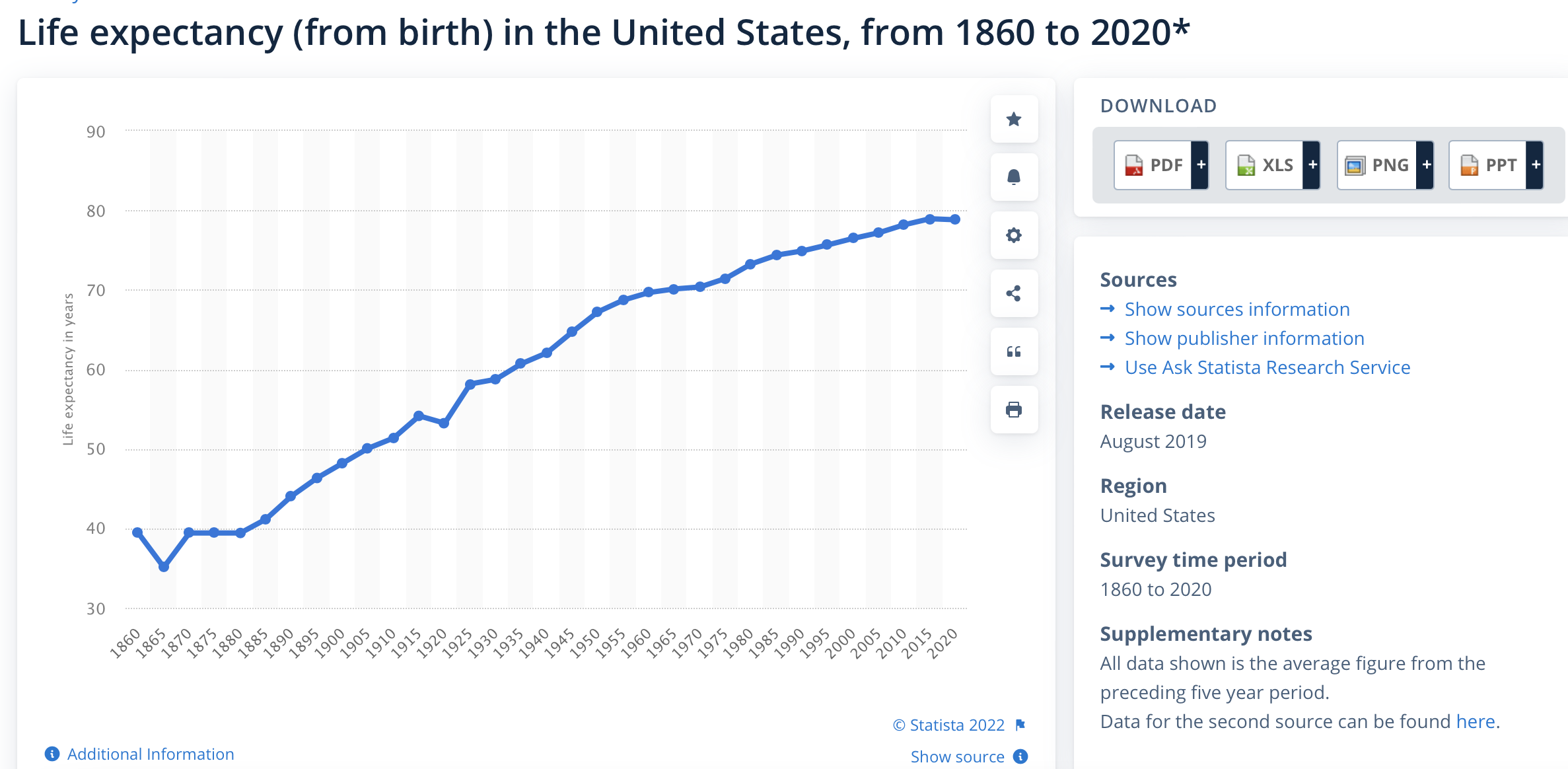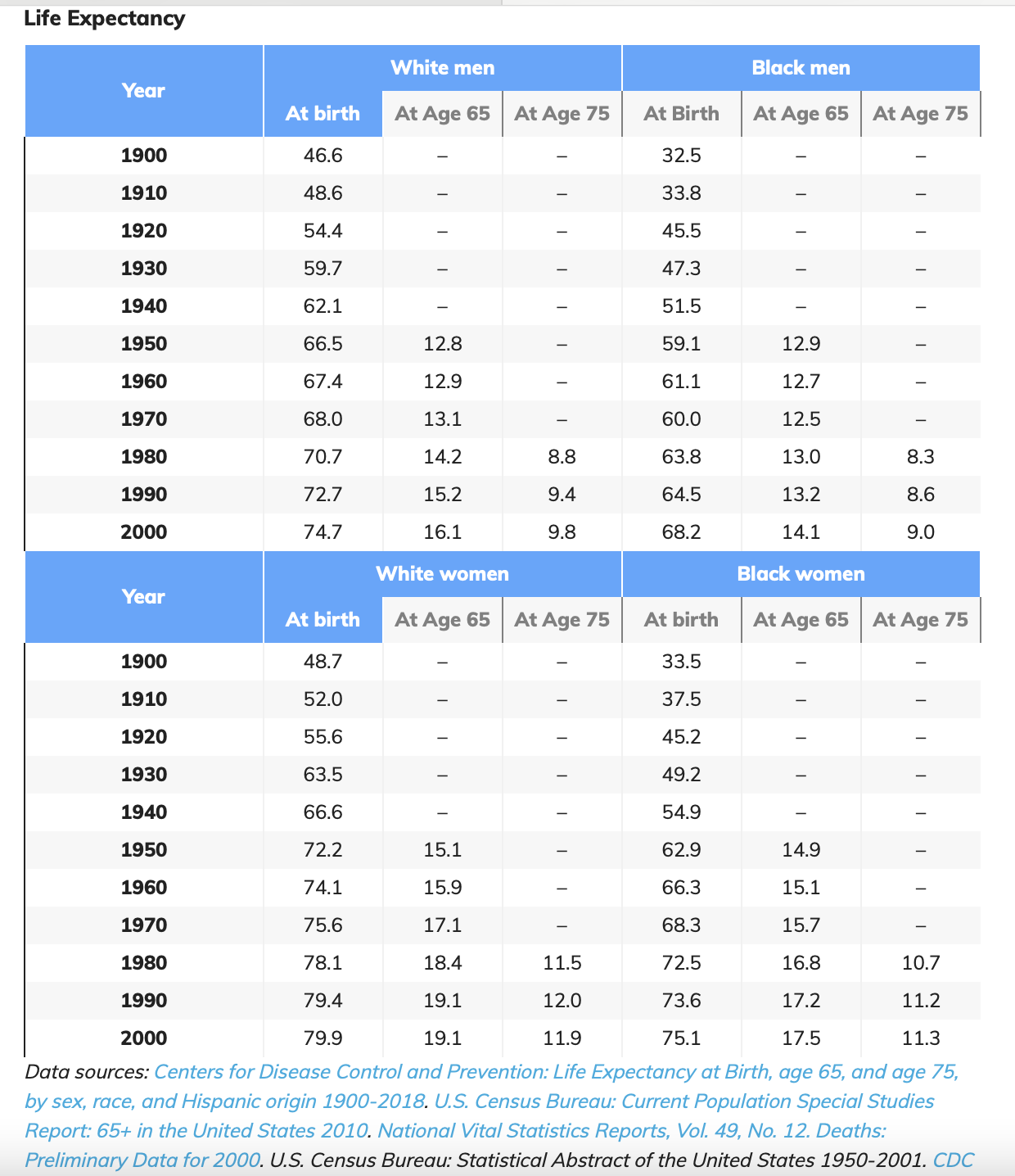The ravages of the ever-increasing chemical and pollutant overload
/One of these two children wouldn't have made it to protesting age in 1890
Reading an article just now in the WSJ, I learned that the average life expectancy in the U.S. is now 77, and that got me wondering how much shorter our lives are now, compared to the golden age of the 19th Century, before we poisoned the world with lifetime chemicals, pesticides in our vegetables, and hormones in our meat.
As it turns out, We’ve done okay since 1800
Life expectancy in the United States, 1860-2020
Published by Aaron O'Neill, Jun 21, 2022
Over the past 160 years, life expectancy (from birth) in the United States has risen from 39.4 years in 1860, to 78.9 years in 2020. One of the major reasons for the overall increase of life expectancy in the last two centuries is the fact that the infant and child mortality rates have decreased by so much during this time. Medical advancements, fewer wars and improved living standards also mean that people are living longer than they did in previous centuries.
Despite this overall increase, the life expectancy dropped three times since 1860; from 1865 to 1870 during the American Civil War, from 1915 to 1920 during the First World War and following Spanish Flu epidemic, and it has dropped again between 2015 and now. The reason for the most recent drop in life expectancy is not a result of any specific event, but has been attributed to negative societal trends, such as unbalanced diets and sedentary lifestyles, high medical costs, and increasing rates of suicide and drug use.
Hmm. No mention of the five horsemen of the apocalypse here, just diet and lifestyle.
What about the first author’s attributing “much of” the increasing life expectancy to the reduction of infant mortality? Certainly, medicine and more food has reduced that significantly, but even skipping the first ten years of a person’s life, 10-year-olds still faced a life that was nasty, brutish, and short: 40 years New Orleans, 50 in Massachusetts
I’m not suggesting that we go back to the halcyon days of dumping raw sewage and the discarded animals onto our rives and lakes, nor resume burning coal without air pollution scrubbers, but I do think that, having corrected the worst dangers of the past age, our environmentalists have been casting about for something new to keep busy, and they found it in the alarmism movement.




